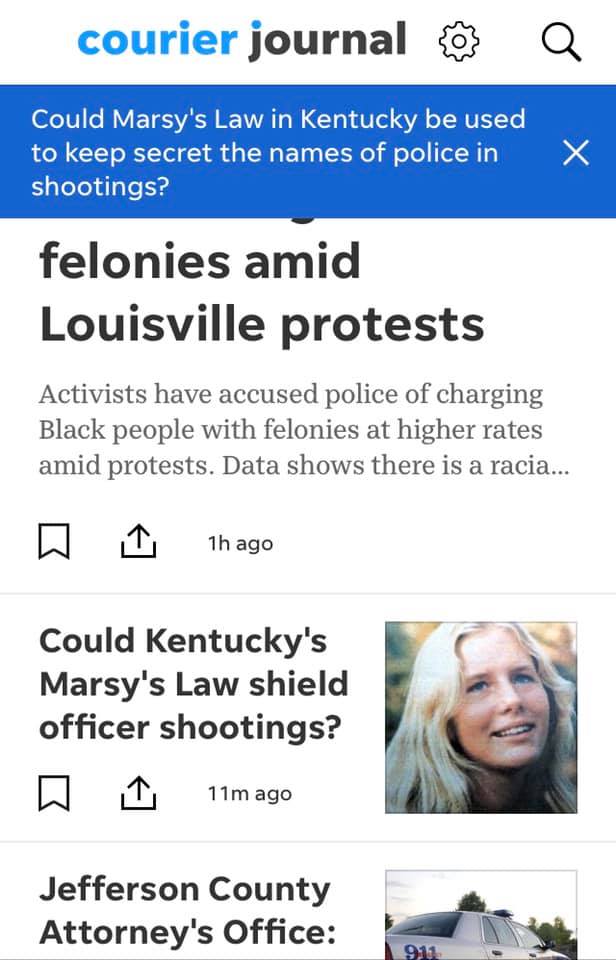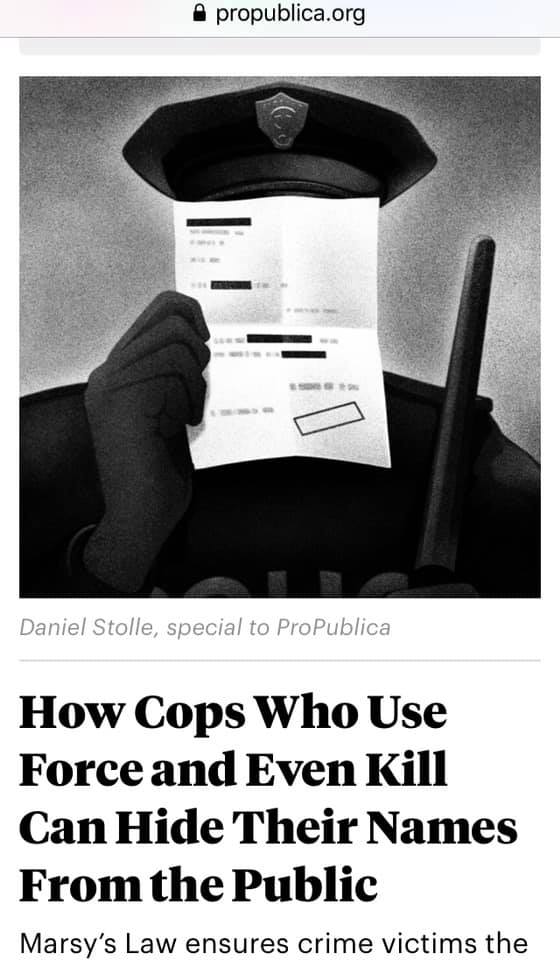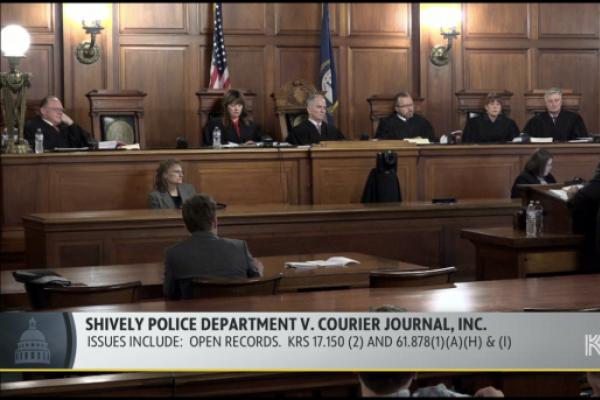

On October 29, ProPublica/USAToday and The Courier Journal published lengthy articles examining the all to real threat to public records access posed by Marsy's Law.
https://www.propublica.org/article/how-cops-who-use-force-and-even-kill…
https://www.courier-journal.com/story/news/crime/2020/10/29/marsys-law-…
ProPublica and USAToday focus on the chaos that ensued in Florida and the Dakotas following adoption of the law. The law's ambiguities, and law enforcement agencies' fear of abridging it, have resulted in a crazy quilt of denials of public records requests postulated on some variant interpretation and application of the law.
At perhaps its most egregious, Marsy's Law has been invoked to shield the identities of police officers who claim victim status in use of force/police shooting/misconduct inquiries. But it has also been invoked as a basis for sanitizing or eliminating crime reporting.
https://www.google.com/amp/s/madison.com/news/local/govt-and-politics/l…
Echoing ProPublica/USAToday's analysis, The Courier Journal reports today on the potential impact in Kentucky.
A modified version of Marsy's Law appears as Amendment 1 on this year's ballot in full text — following a successful legal challenge to the misleading summary of the amendment that passed in 2018.
https://www.google.com/amp/s/amp.courier-journal.com/amp/1442974001
The Kentucky Open Government Coalition has nevertheless received inquiries about what the amendment means and what it is intended to do.
Repeated assurances from supporters that "it cannot happen here" offer little comfort to those who have regularly observed Kentucky's law enforcement agencies exploit purported loopholes and ignore well-established precedent to avoid accountability.
Is Marsy's Law a threat to open government and "a gift to bad cops," as some have claimed?
Unfortunately for Kentucky, the only certainty is uncertainty.



